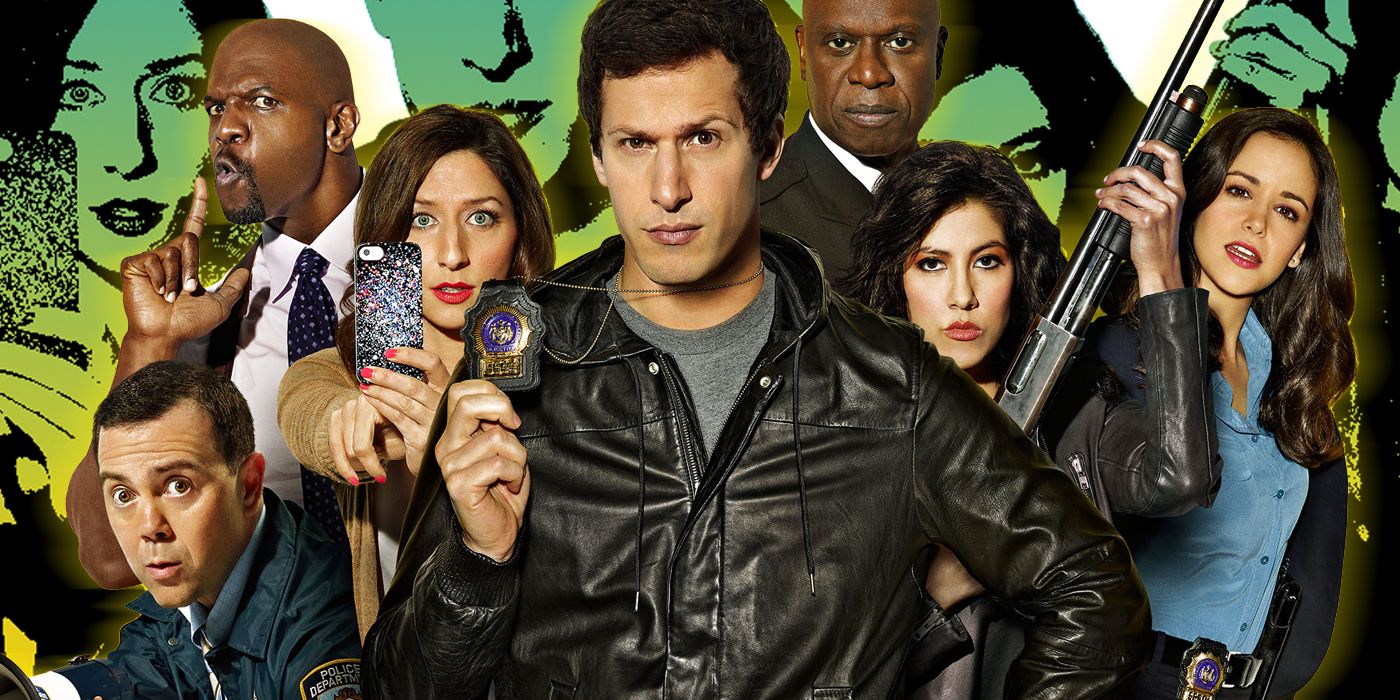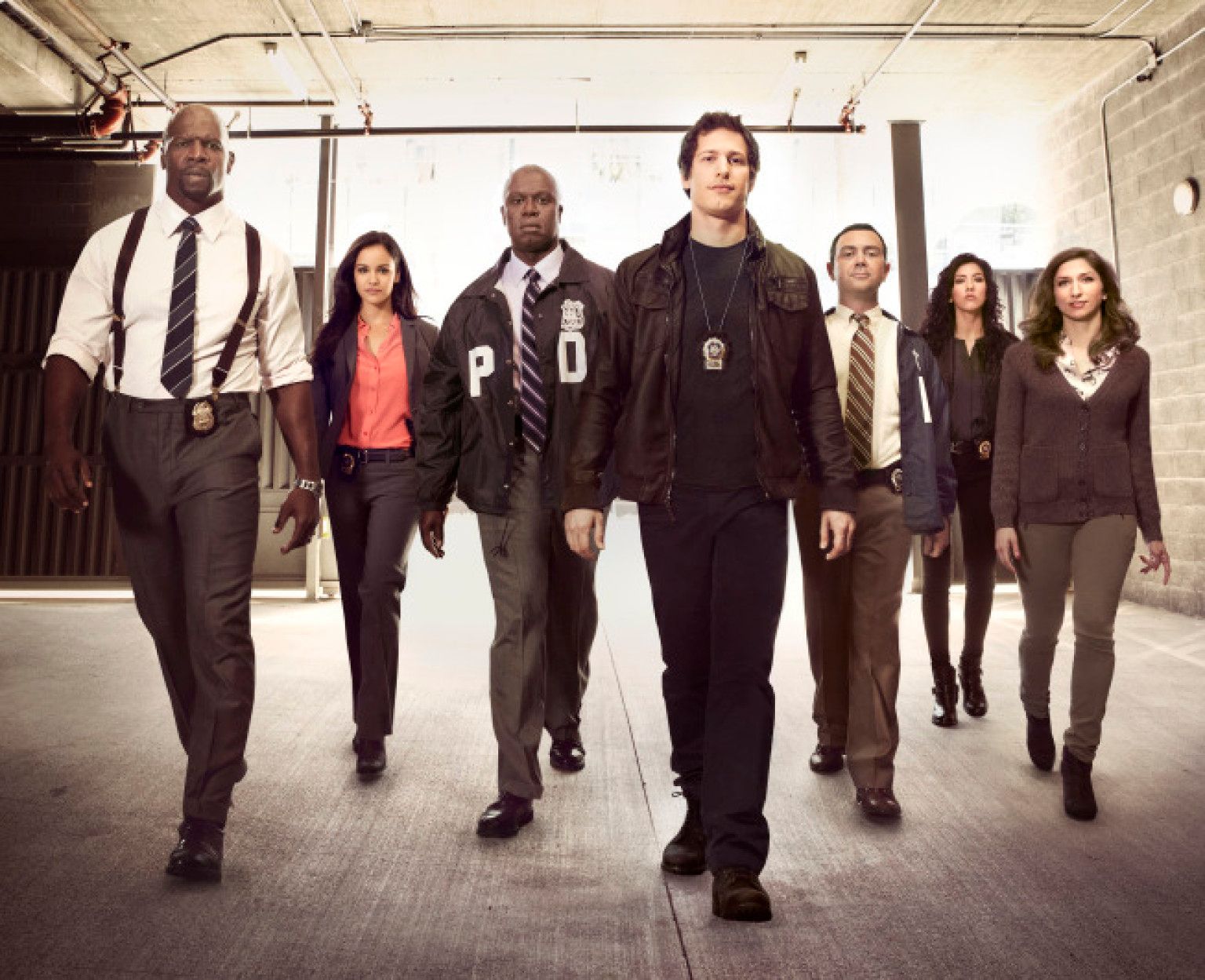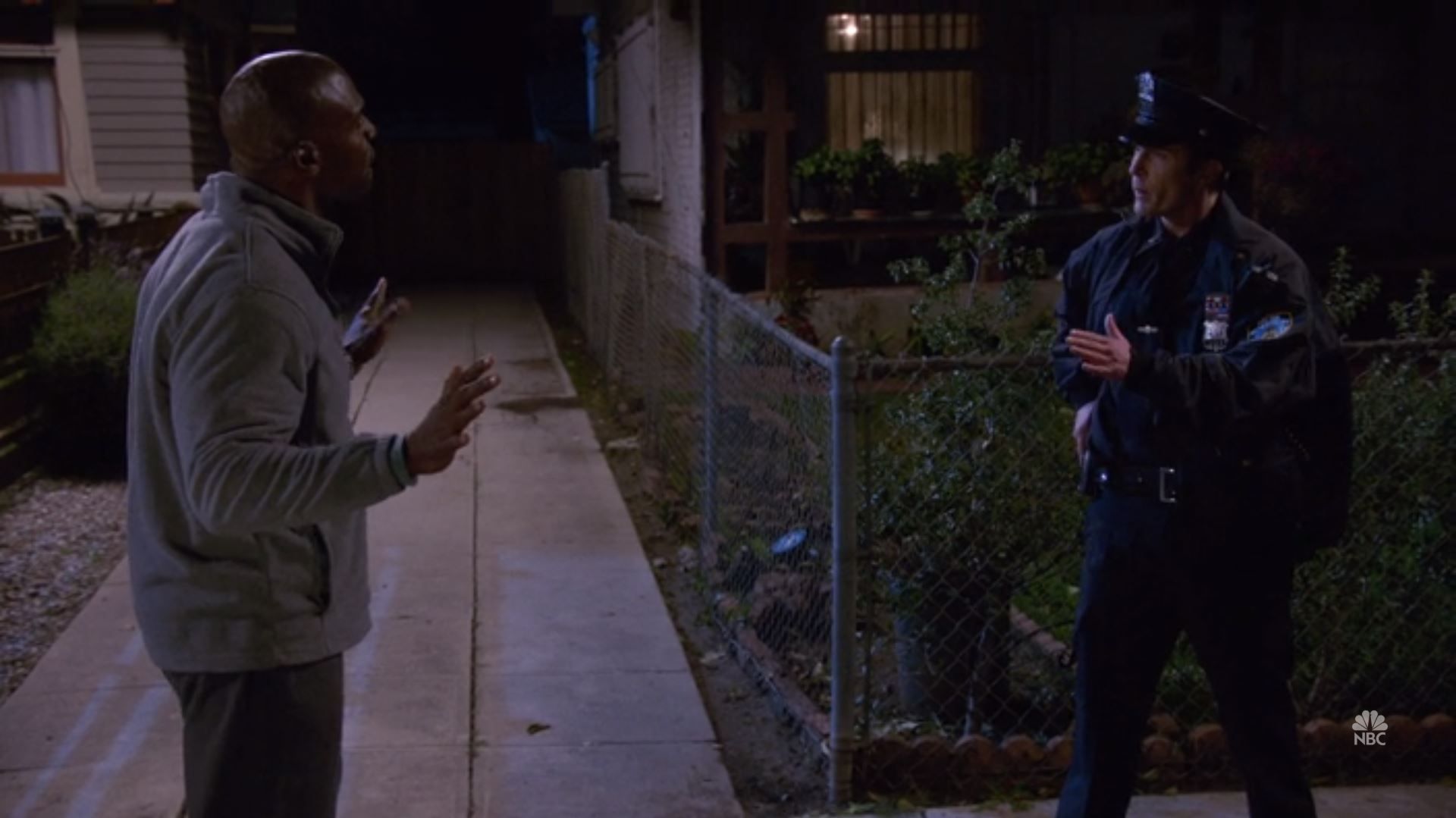Over seven seasons, Brooklyn Nine-Nine has progressed from oddball cop comedy to one of the most beloved sitcoms currently airing, even weathering a brief cancellation by Fox following its fifth season before finding a new home on NBC. But as the United States reckons with a long overdue conversation around anti-Black racism and the role of police in our society, can the show about cops with hearts of gold address the moment with poignant dignity while retaining its belly laughs, or like a character in one of the show's cold opens, is it doomed to fall on its face in the attempt?
There are reasons to be hopeful that the show will get it right. For one, Brooklyn Nine-Nine has enthusiastically engaged with conversations around American policing in several episodes and storylines, including an episode in Season 4 and a season-long arc in Season 6 in which Captain Holt (Andre Braugher) loses the position of commissioner to a rival.
Additionally, even when the show touches on sensitive subject matter, it tastefully avoids drawing humor directly from racism or other social ills, preferring to hinge its punchlines on absurdist humor or on character reactions to the problem (main character Jake's increasing wokeness over the course of the show is a metajoke unto itself). Plus, stars Andy Samberg and Terry Crews recently confirmed Brooklyn Nine-Nine is changing course to address the current moment in its upcoming eighth season.
On the other hand, Brooklyn Nine-Nine has a fundamental problem in the current political climate. In times past, a show about police could justify itself by simply presenting its own characters as unequivocal good guys to help the audience work past any misgivings. However, in a time when society is beginning to question the very necessity of policing, that justification looks rather flimsy. And to have uniformed cops goofing around and cracking jokes might not work optically when the very image of police is so painful for so many.
This is not a problem unique to Brooklyn Nine-Nine. It is rare to see a show about cops acknowledge the system of policing has problems that are larger than individual racist officers. Cop shows rely on viewers rooting for the police as protagonists by default, especially in a sitcom setting, but it's hard to root for or laugh with people who work in a racist system, no matter how funny they are.
As an example, let's examine the episode, "Moo Moo," from the show's fourth season, in which Officer Terry Jeffords is targeted for a stop-and-frisk while in plainclothes by a white officer in his neighborhood. It is among the only episodes of Brooklyn Nine-Nine where police racism is meaningfully discussed, and although the episode handles the subject with undeniable grace, the upshot of its resolution is that Terry files a complaint against the offending officer. We are never told whether the officer has been disciplined, but Captain Holt remarks that the officer "will think twice before making another bad stop," implying that at the very least, that cop still has his job. Even so, the show treats this outcome as a moral victory and the episode ends with Holt and Jeffords sharing a drink to celebrate.
The episode is uproarious, with jokes at whiplash speed, but the issues with this approach to the topic of police racism are manifold. Although the episode acknowledges that Black people are victimized by police and that Black police officers face racism even inside the institution they serve, it treats the issue as a case of a few bad apples. This serves the purpose of absolving the entire cast of the show from scrutiny. Holt remarks that in the Brooklyn Ninety-Ninth, there are no officers that would racially profile a person of color, a line seemingly intended to assuage viewer concern. Although the episode is funny, the tightrope walk required to make the episode both funny and topical without incriminating its own characters in systemic racism is so obvious as to mar the viewing experience.
It makes sense that the show would want to absolve its lovable characters of such grievous wrongdoing, but given what we know about the systemic nature of police violence, it's a worldview that functions primarily to assert the existence of "good cops" -- a necessary fiction for a show about, you know, good cops. It's a premise that certainly would not hold up in a post-2020 world.
It's worth noting that Brooklyn is one of many places where largely minority populations find themselves living in constant fear of police violence on the basis of their race, gender presentation, religion or other identities, and you would be hard-pressed to find a Brooklynite without at least one horror story about the NYPD. In the real Brooklyn, there's no Andy Samberg on-scene to crack a quick joke about Die Hard while he's putting his boot on your neck.
A sitcom about cops can only go so far in its criticism of policing as a profession and as an institution without becoming a much different (and much less humorous) show. Brooklyn Nine-Nine is equipped with sharp comedic writing. It also wants to do the right thing. That much is clear in every episode and in every interview given by its cast and executives. It would be foolish to predict anything ahead of the season premiere, whenever that arrives, but it is not too early to ask whether we need a show that does so much work to make police seem relatable, helpful and competent.
When the reality of policing is so often the opposite of everything for which Brooklyn Nine-Nine stands, are its creators willing to bend over backward to keep its premise intact in the service of creating high-budget police agitprop? And if not, what other options does the show have to retain both its heart and its humor? Might it look to what a future of reduced police presence in our society would mean for the answers?
Like the Halloween Heist, any outcome is possible for the funniest cops on TV.



